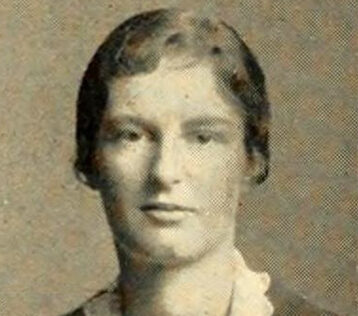Lois Tripp Slocum (1898 – 1951)
Posted on February 29, 2024 by Jenny ONeill

WOMEN OF WESTPORT POINT
LOIS TRIPP SLOCUM
Astronomer
2011 Main Road, Westport Point
Lois was not a resident of Westport Point but she was a frequent visitor, staying with her grandparents, Christopher and Eleanor Tripp, who lived at 2011 Main Road. Perhaps the clear night skies at the Point inspired her deep interest in the Milky Way and dark nebulae, a passion that led her to become a noted astronomer of her era.
Born and educated in New Bedford, her family was rich in seafaring and astronomical tradition. (Her uncle Frederick Slocum was Professor of Astronomy at Brown.) Her mother’s parents resided at the Point, and Lois was a frequent visitor. The social columns of the local newspapers recorded the visits: Edward Slocum and family of New Bedford came in their motor boat and are guests of Mrs. Slocum’s parents (The Evening Herald, 16 July 1912). By 1915 Lois was visiting on her own.
Lois received her B.A. from Smith College in 1921 and her Ph.D. in Astronomy in 1930 from the University of California where she was a Lick Observatory Fellow.
Her doctoral research received some media attention, as offering further evidence that “thousands of stars visible to the naked eye are merely sparks in a gigantic pinwheel.”
Astronomy was a popular subject for college women. In the late 19th century women’s colleges in New England built observatories and were an important source of both astronomy graduate students and of faculty positions. Lois was among the first sixteen female doctoral graduates in astronomy at UC Berkeley.
“Generally speaking the fields of science are completely dominated by men, but astronomy has notably benefited from the research of some of its female star gazers” reported a newspaper in 1932. This article notes that Lois Tripp Slocum was among a group observing the eclipse of the sun hat year “working arduously at the delicate job of adjusting and checking the elaborate instruments which are to be focused at the sun.”

During the Second World War, Lois became a special research associate at Harvard’s Radio Research Lab.
Her subsequent career as a teacher typifies the limited opportunities available to women scientists of the era. In 1944 she was appointed professor of astronomy at Wilson College, a college for women in Chambersburg, Pennsylvania, where she remained for the rest of her career. She did not marry, thus avoiding the prevailing expectation that women would retreat from professional life to raise families. Her scientific research may have been further curtailed by the perception of women as being physically fragile and the reluctance to allow women access to observatories at night.
She died after a brief illness at the age of 52. Her colleague, Bart Bok, delivered the Lois Tripp Slocum Memorial Address in 1951 mourning “the tragic death of our good friend Lois Tripp Slocum” and noting “she carried on her work to the very last and through her splendid example of cheerful determination, she had strengthened the love and admiration which her friends and colleagues had long felt towards her.”
Learn more:
UC Berkeley
The 150 Women Project – Holding Series
Celestial Observers:the First Sixteen Berkeley Women Doctoral Graduates in Astronomy
https://escholarship.org/uc/item/7v72577k
